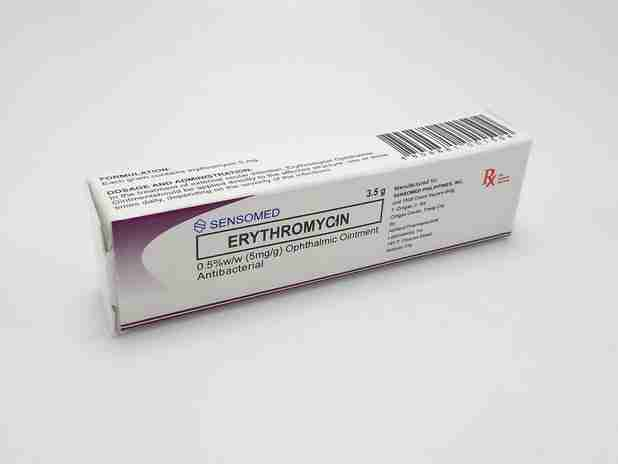Blepharitis Medication & Treatments

Visiting an eye specialist may be required if home remedies fail to alleviate the irritation and inflammation. It may be necessary to treat the infection with oral antibiotics, eye medications, topical ointments, and steroids. Options for treatment may include: (7)
Medical treatments
Several medications exist to treat blepharitis, including;
Anti-infective pharmaceuticals
Antibiotics are used to treat bacterial overgrowth-induced blepharitis. Depending on the severity of the infection, your healthcare provider may prescribe either an oral or topical antibiotic. Antibiotics applied to the eyelid or administered orally can alleviate the symptoms of bacterial infections of the eyelids. They are available as eye drops, balms, and ointments. To treat blepharitis, antibiotics such as erythromycin and bacitracin are applied to the eyelids. Tetracycline or doxycycline may be prescribed if topical remedies do not completely eliminate the infection.
Medications used to reduce inflammation
In general, steroid eye drops or ointments are used to treat patients who do not respond to other treatments. If your doctor determines that you require a stronger medication, steroid eye drops or cream can be added to your treatment plan. Steroids are used for inflammation reduction. Antibiotics and anti-inflammatories may both be prescribed when underlying conditions or secondary infections are present.
Combination therapy
Typically, antibiotics and corticosteroids are administered together to treat blepharitis more effectively. Antibiotics and steroids are less effective when used separately than when combined. Blephamide is a combination of the corticosteroid prednisolone acetate and the antibiotic sulfacetamide sodium. There are topical ointments and eyedrops available.
Immune-modulating medications
Topical cyclosporine (Restasis) alleviates the symptoms of blepharitis. It has been demonstrated that Restasis reduces inflammation in instances of posterior blepharitis. They function by suppressing the body’s immune system, thereby reducing inflammation.
Eyelash Mite Therapy
When eyelash mites cause blepharitis, a medication that eliminates parasites may be prescribed. Oral treatment of Demodex eyelash parasites with Stromectol (ivermectin) is effective. The medication is administered twice per week.
Therapies for underlying ailments
Blepharitis may be caused by rosacea, seborrheic dermatitis, or other conditions. These conditions do not respond to the topical ointments and eye medications commonly used to treat blepharitis; they require specific treatment.
Using concentrated pulsed light or alternative treatment methods may assist in unclogging the glands. However, complete recovery from blepharitis is uncommon. Despite effective treatment, the condition is frequently persistent and requires daily ocular cleansing. If only one eye is affected, if the condition does not respond to treatment, or if you have lost your eyelashes, the condition could be caused by localized eyelid cancer.
